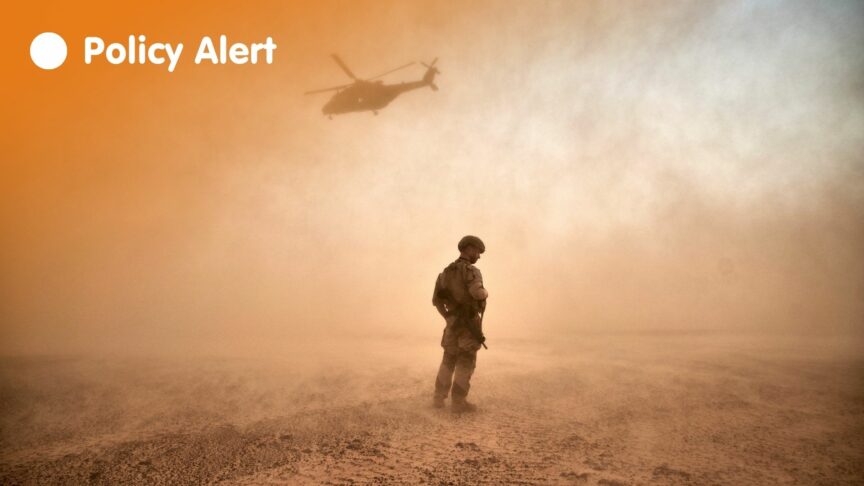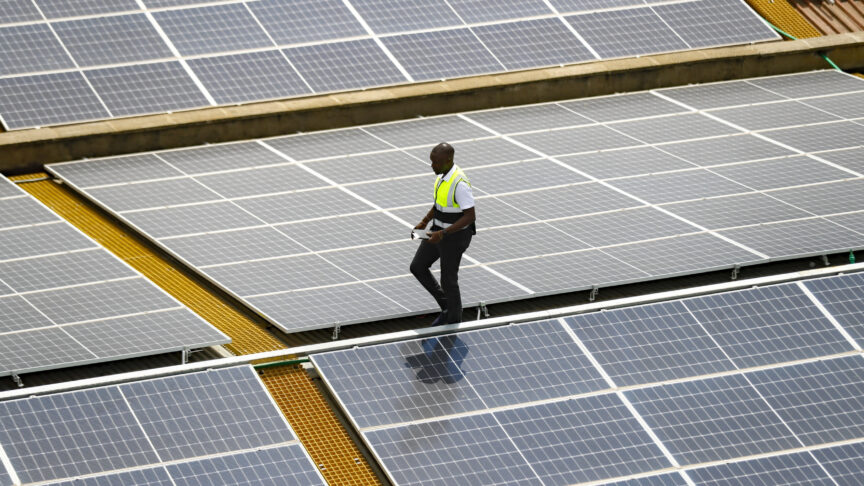Sudan after Hamdouk: Three steps Europeans should now take
Following the prime minister’s resignation, Europeans should now attempt to avert the military from further repression, engage the broader civilian constituency, and seek a new form of mediation
On 21 November last year, Sudan’s then prime minister, Abdalla Hamdouk, and General Fatah al-Burhan signed what was to prove a highly controversial 14-point Political Agreement. It aimed to resolve the crisis created by the military’s coup the previous month, in which it ousted the civilian part of the civilian-military transitional government. Justified as a means of ending violence, the agreement instead fuelled it. Peaceful protests previously opposing the coup transformed into protests against the Political Agreement. These protests increased in scope and repression grew, with security services resorting to even harsher measures than those witnessed under former president Omar al-Bashir.
Hamdouk took the fateful decision to resign on Sunday, citing his failure to convince the civilian political party coalition – the Forces for Freedom and Change (FFC) – of the Political Agreement’s merits. Hamdouk’s departure means the last vestige of the civilian government is gone, leaving a constitutional vacuum in his wake.
The challenge to European policymakers
Sudan’s international partners had sought to avoid Hamdouk’s resignation, judging it better to work with things to hand – namely, the Political Agreement, however imperfect it was – than start afresh amid myriad unknowns. With Hamdouk gone, there is no longer a single, legitimate, interlocutor on the civilian side. He has been replaced by a diffuse plurality of political parties and protest movement structures. Profounder still in terms of its implications for the transition is the question of whether the 2019 Constitutional Declaration that birthed the transitional government remains the accepted means of governing Sudan for the wider civilian constituency.
While the scope and number of problems to tackle are daunting, there are silver linings. For one, the divergence between the international community and the protest movement around the Political Agreement is no longer an issue. Nor is the international community compelled to balance between its support for the prime minister and the protest movement. Here the Political Agreement threatened to contort European and other international actors’ policy, which most fundamentally aims to support Sudan’s democracy. This came into tension with the country’s most numerous democrats, the protest movement, when they rejected the Political Agreement.
What can Europe do now?
This seismic shift in the Sudanese political landscape demands a major international policy adjustment. Policymakers’ first reflex will be to reach for pragmatic options that are close to hand, such as the political structures already in place – agreements, official government counterparts, and so on. Yesterday’s statement by the European Union and the troika of Norway, the United Kingdom, and the United States emphasises the continuing validity of the 2019 Constitutional Declaration – providing an example of that reflex. Instead, the first step should be to accept the full transformative implications this change portends. Bureaucracies require time to absorb such a reorientation. In the meantime, there are three areas demanding immediate focus: the military; engaging the broader civilian constituency; and mediation.
Currently both the military and the protest movement are prepared to escalate. But escalation for the protest movement means more peaceful protest, while for the military it means doubling down on repression. And the military’s recent power-acquisitive track record telegraphs its intent to seize full power of the government. International partners therefore need to focus first on the military.
In this regard, they must make continued international support for Sudan conditional on the reconstitution of the civilian component of the transitional government – with the crucial caveat that it must have the backing of a broad swathe of the wider protest movement and political parties associated with the civilians. This is important because, otherwise, the military will be tempted to hand-pick a puppet civilian prime minister. Although such a move contravenes the 2019 Constitutional Declaration, the constitution has been more honoured in breach than application as the transition has worn on. Justification could be manufactured through promulgation of an Emergency Order law shifting the power of nomination to the now military-dominated Sovereignty Council. Examples of this international support include the aid Sudan is receiving via the international financial institutions (IFIs), such as continuing debt relief, but also World Bank programmes such as the Sudan Family Support Project. G20 nation taxpayers underwrite this support – with some European states paying the lion’s share – creating a burden of accountability for policymakers to ensure the funds align with the advertised political goal: supporting a Sudanese transitional government with a trajectory towards democracy. Should the military succeed in hijacking Sudan’s central bank, where IFI funds reside, and redirect these to its own ends, a serious rupture of the compact with Sudan’s international partners would occur.
International partners must make continued international support for Sudan conditional on the reconstitution of the civilian component of the transitional government
Beyond highlighting the dangers to the government’s continued receipt of G20 nation support, policymakers also need to identify ‘sticks’. Sanctions should target both individuals who enable the military’s political subversion and companies linked to the wider military security-economic network. An effective mix would combine travel restrictions on individuals with financial sanctions targeting this network. Effectiveness depends on the scalability and staggering of the sanctions. Each escalating ‘hit’ must offer a new decision point to the military and its enablers: seek an offramp or face further pain.
Secondly, without the prime minister, Sudan’s international partners need a new way to engage the broader civilian political constituency. To this end, European policymakers should ask the FFC to form an interim representative mechanism, which critically must also include the protest movement. This should not be billed as the new civilian leadership but rather be clearly signposted as a short-term, ad hoc body to interface with international partners on the one hand and between the FFC and wider protest movement on the other. The best-placed organisation to facilitate this is the existing United Nations mission on the ground, UNITAMS. Here too policymakers should make clear that this is an ad hoc crisis response measure. This is to avoid any suggestion that the UN is precipitously arrogating to itself any wider mediation mandate.
This mechanism can also provide a first step in redressing a key lesson learned of the protest movement from the overthrow of Bashir in 2019. At that time, the protest movement took a hands-off approach to policy, preferring to act as a popular check on the transitional government but not to participate in it, or form a political party or parties. This led to the emergence of a legitimacy gap. The civilian side of the transitional government’s actual democratic bona fides derived from the protest movement but its official mandate flowed from the FFC, the political party understood to represent the civilians but which over time drifted away from the protest movement. The interim representative mechanism can start to create some political muscle memory for the protest movement in preparation for it taking a more direct, governing, political role.
Thirdly, mediation by a credible, politically weighty, but non-partisan actor is needed. But before negotiations can begin, the political goalposts within which a new agreement will be negotiated still need to be fixed. Should the protest movement manage to completely immobilise the now military-led government, it may realise its maximalist demand: full removal of the military from the future transitional government and its exit from the political life of Sudan. Still, some civilian FFC political leaders (not protest movement leaders) have already articulated more middle-of-the-road demands; rather than excising the military from government, they demand a genuine partnership. Assuming the military can change its calculation in favour of such a partnership, a means of squaring the circle of the protest movement’s maximalist position will need to be found. The eventual solution may lie in engaging the military as an institution while targeting its current leadership for responsibility for misdeeds under their tenure. Concretely, the quid pro quo for a revitalised partnership would be that the military’s current leadership step down. In so doing, demonstrable consequences will follow misdeeds while encouraging the possibility for a new military leadership to take a better approach.
The European Council on Foreign Relations does not take collective positions. ECFR publications only represent the views of their individual authors.



